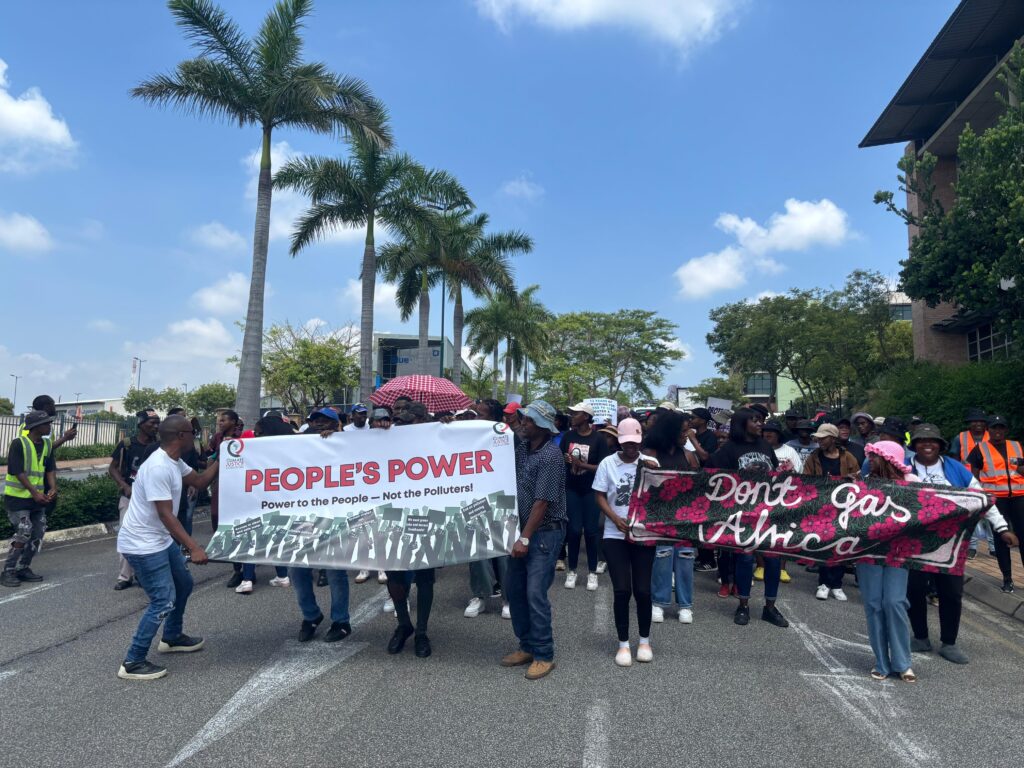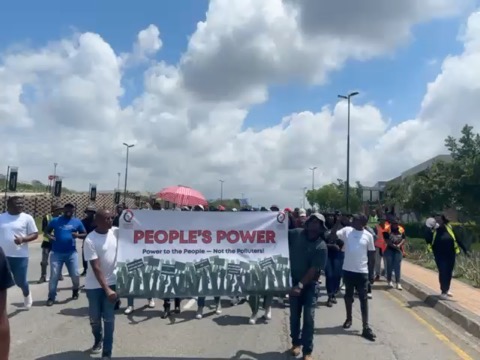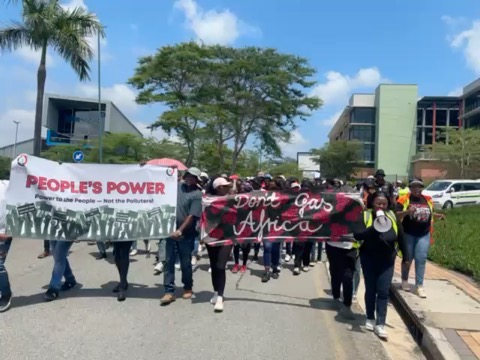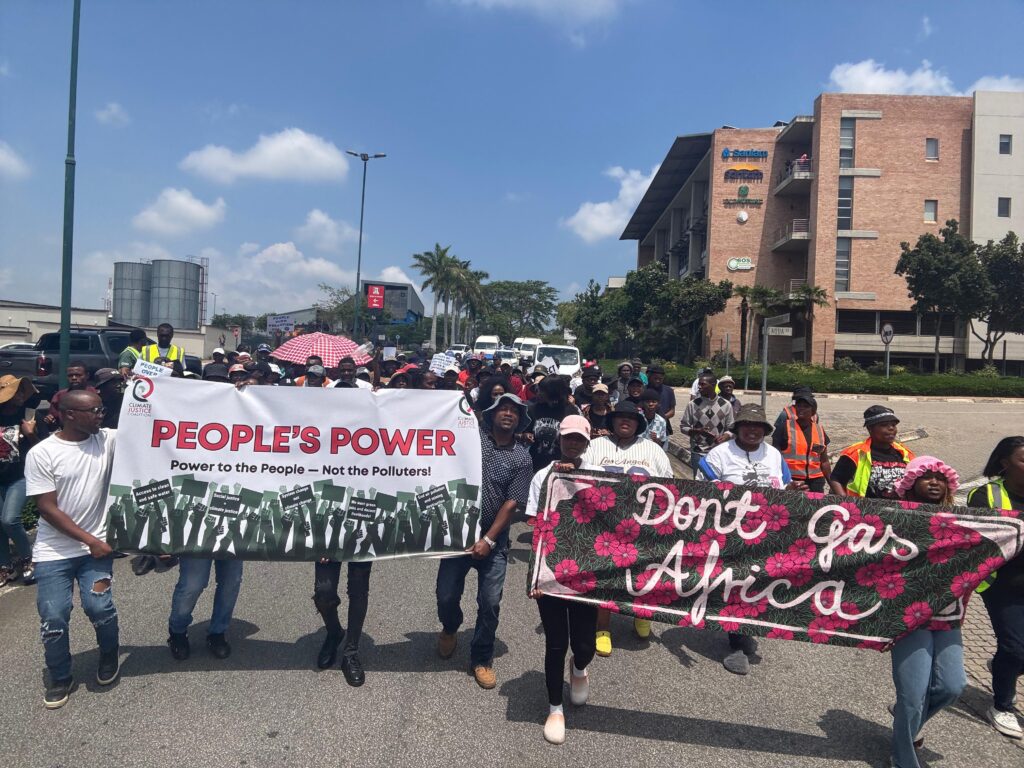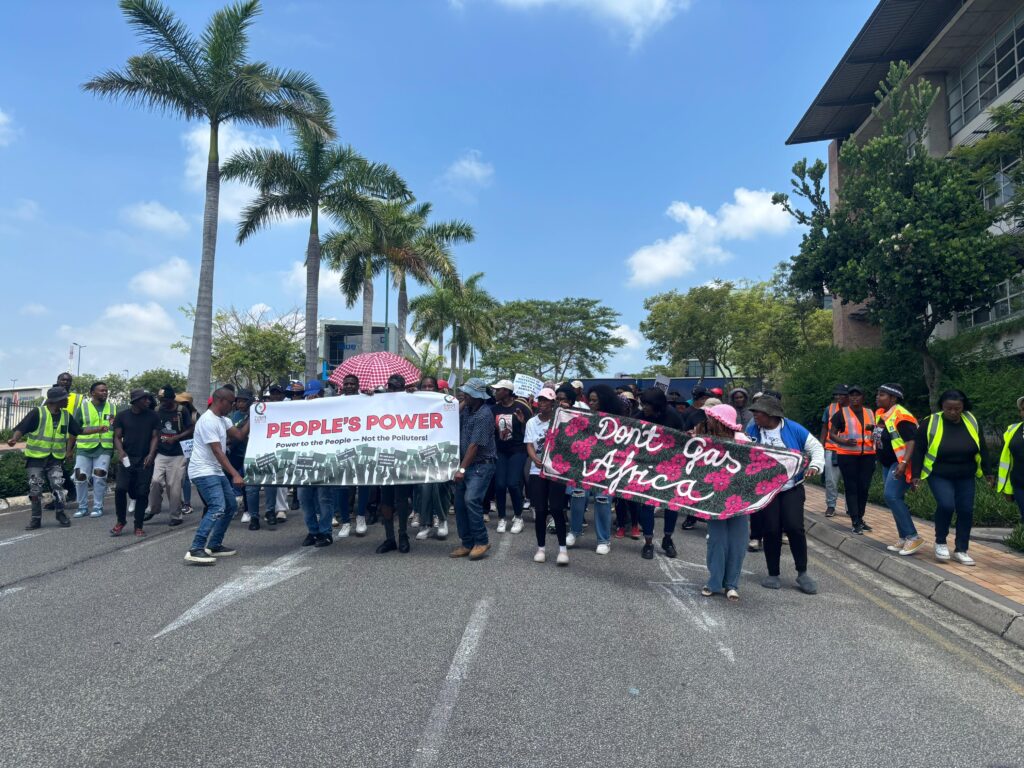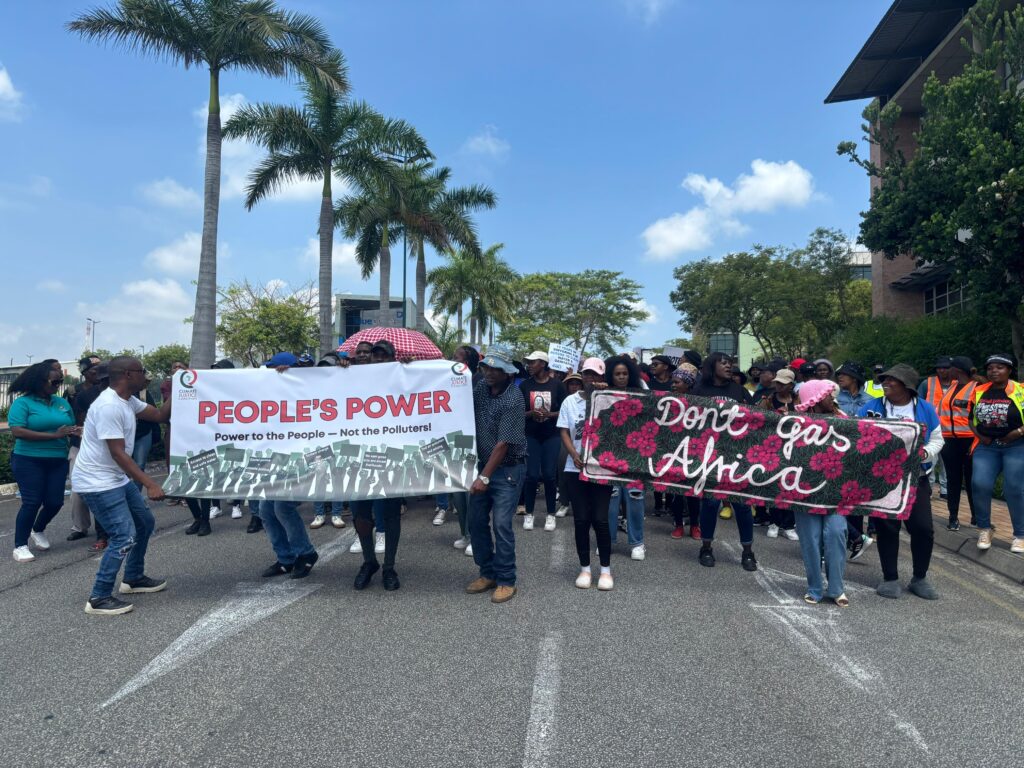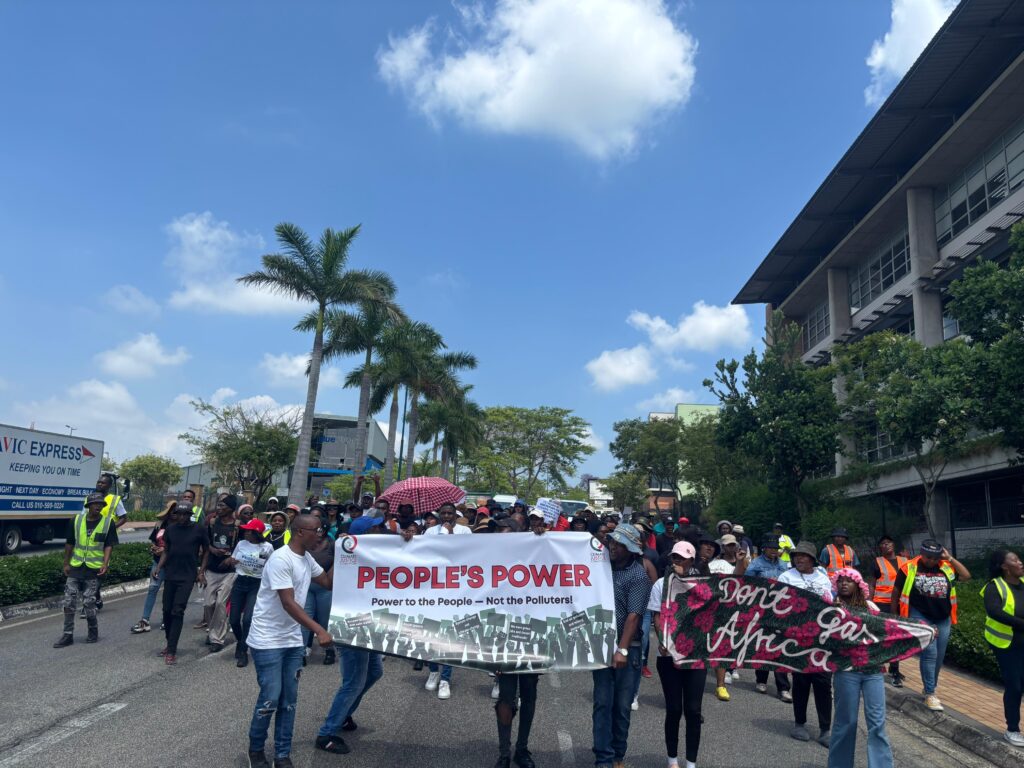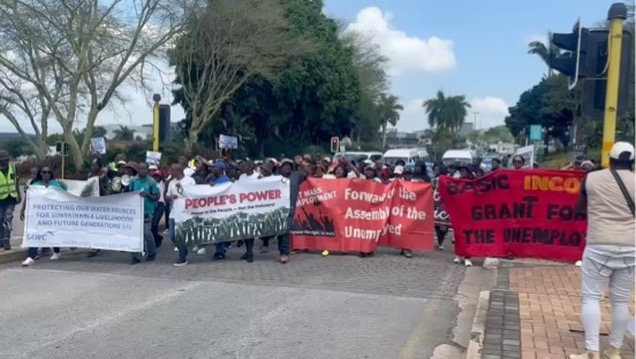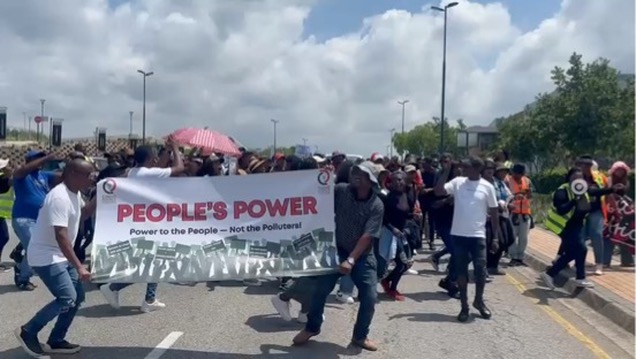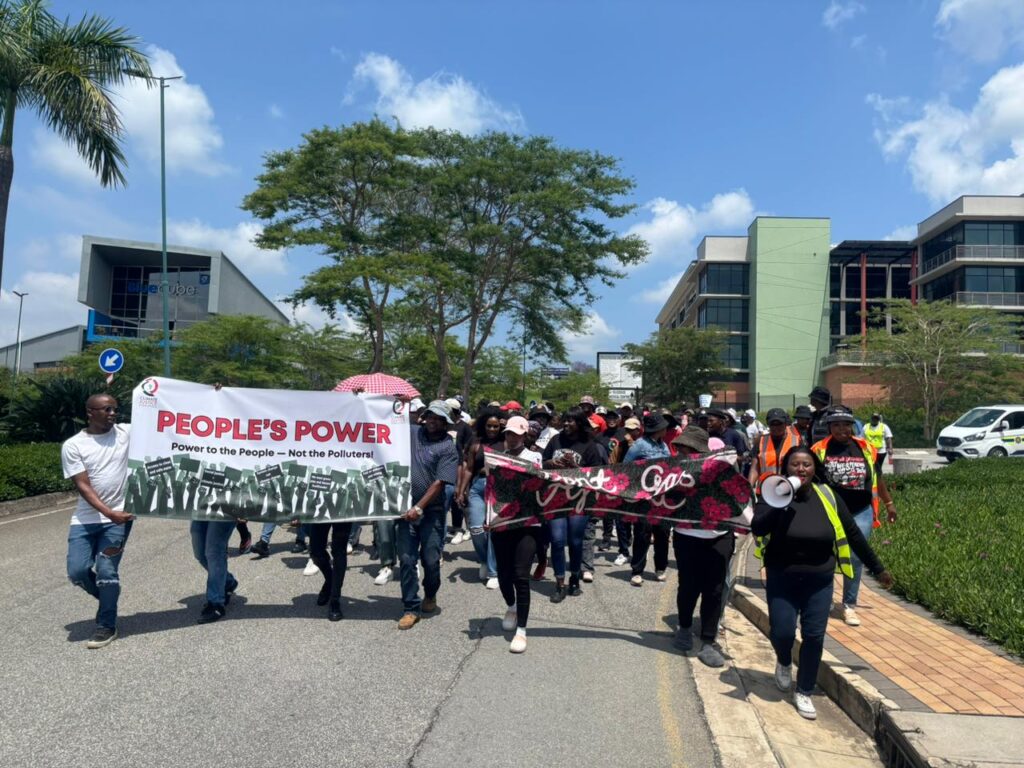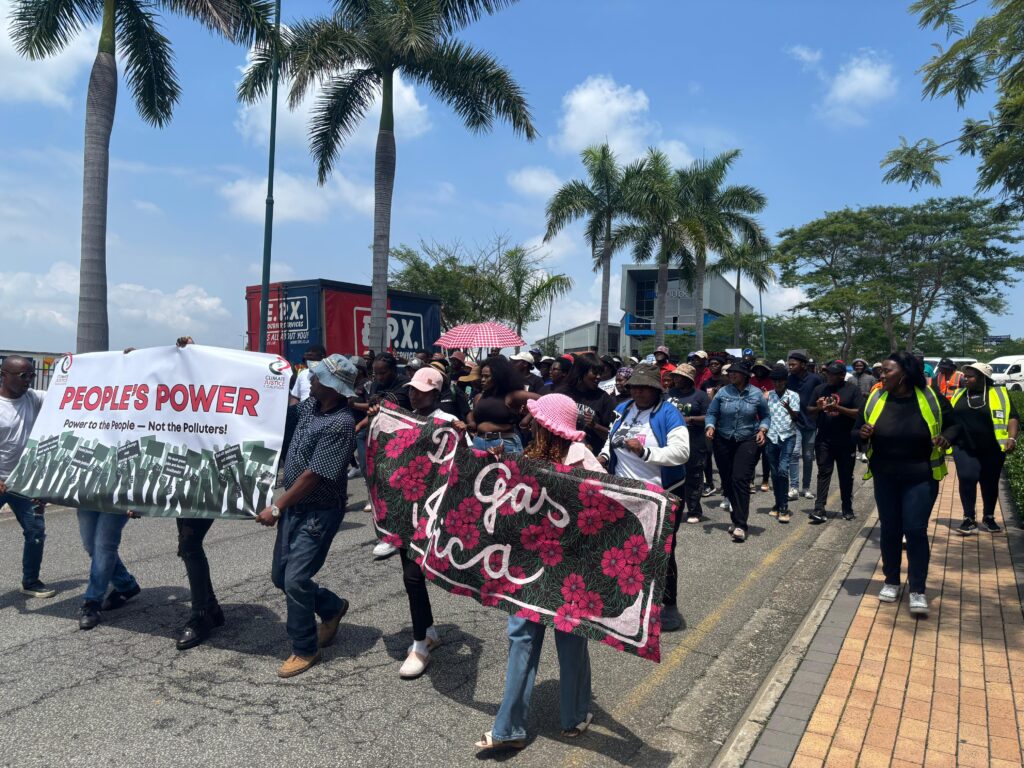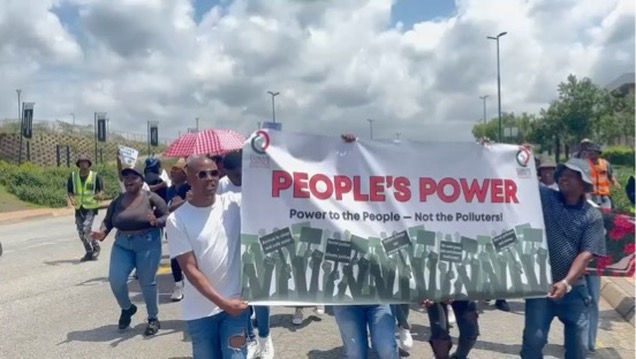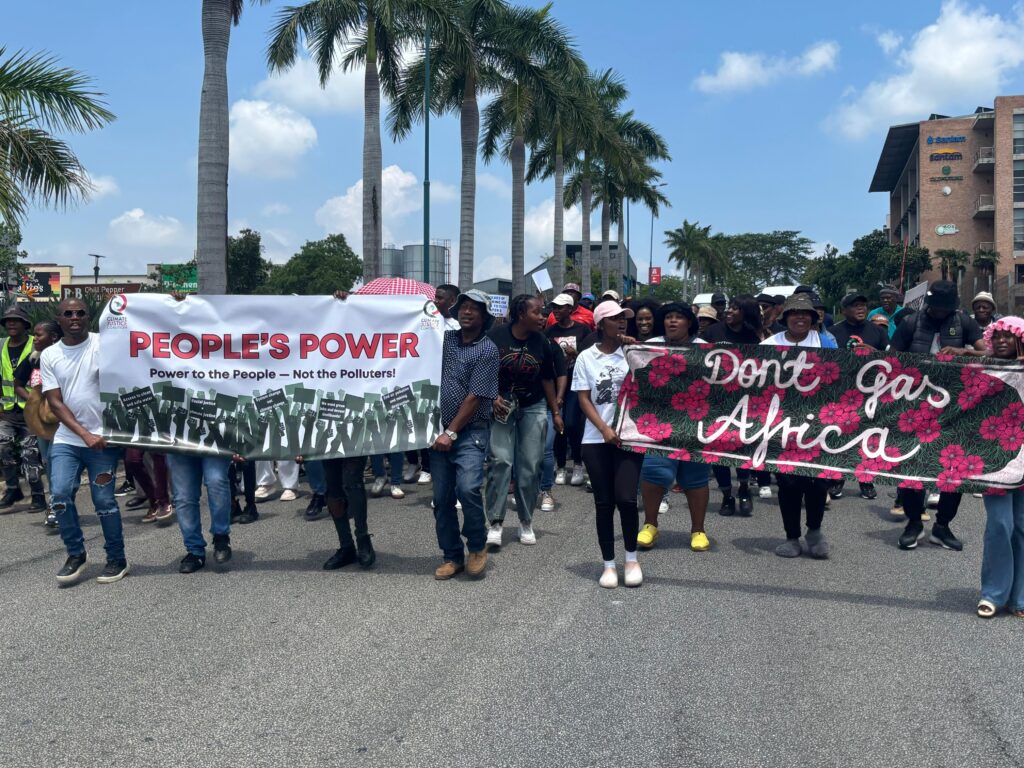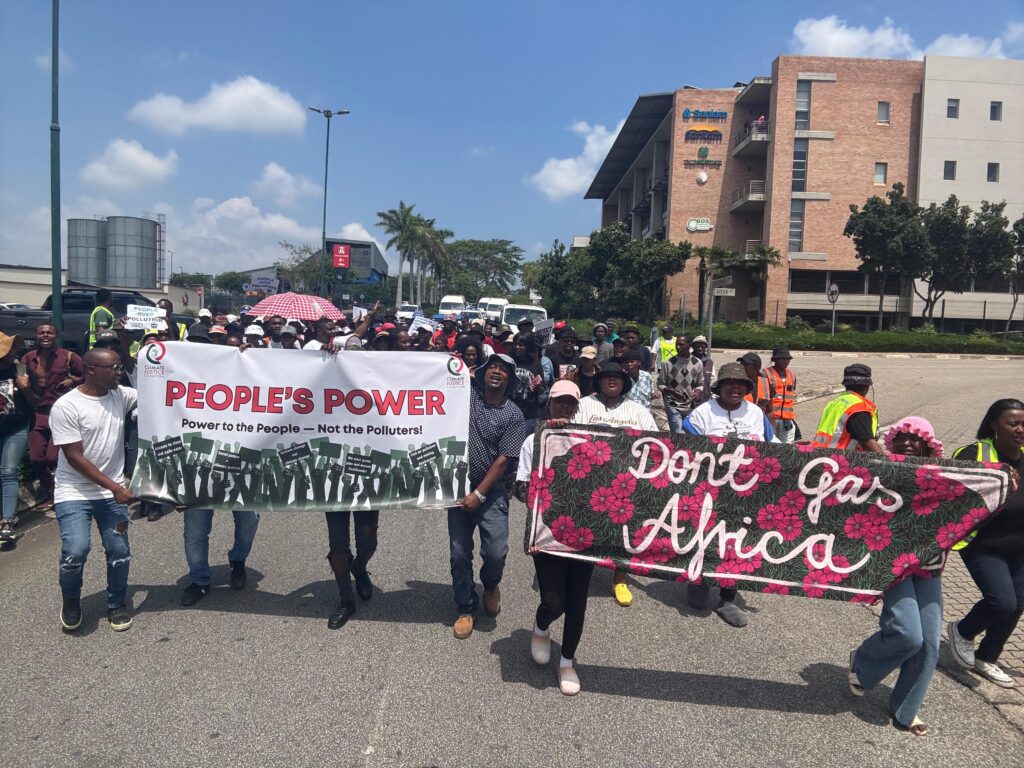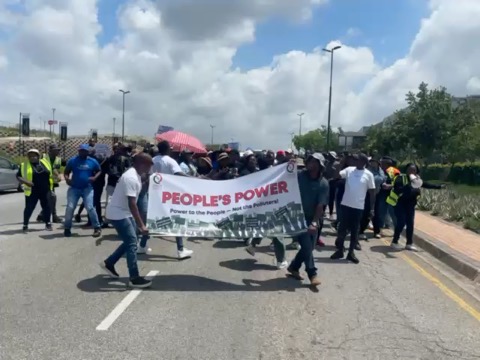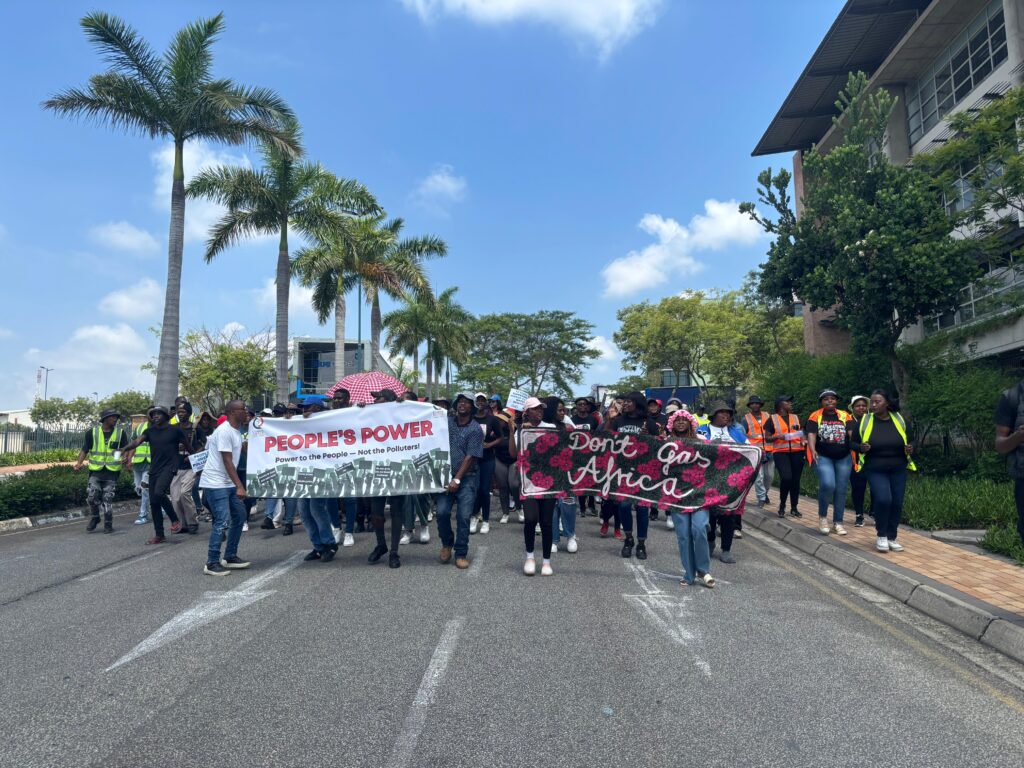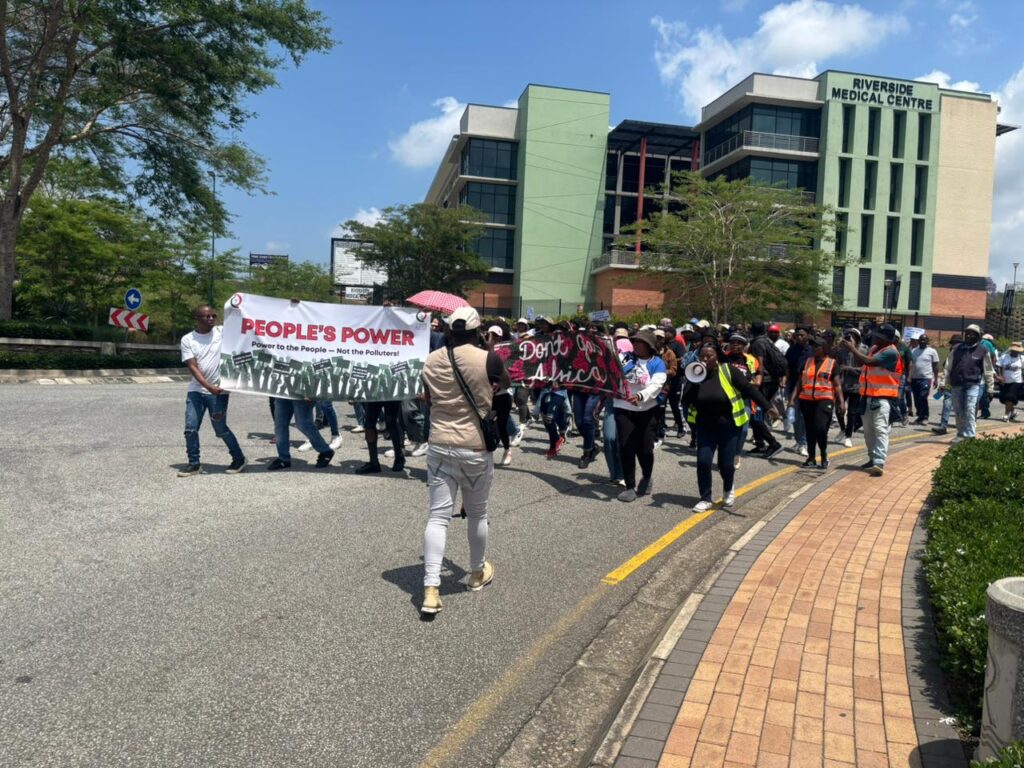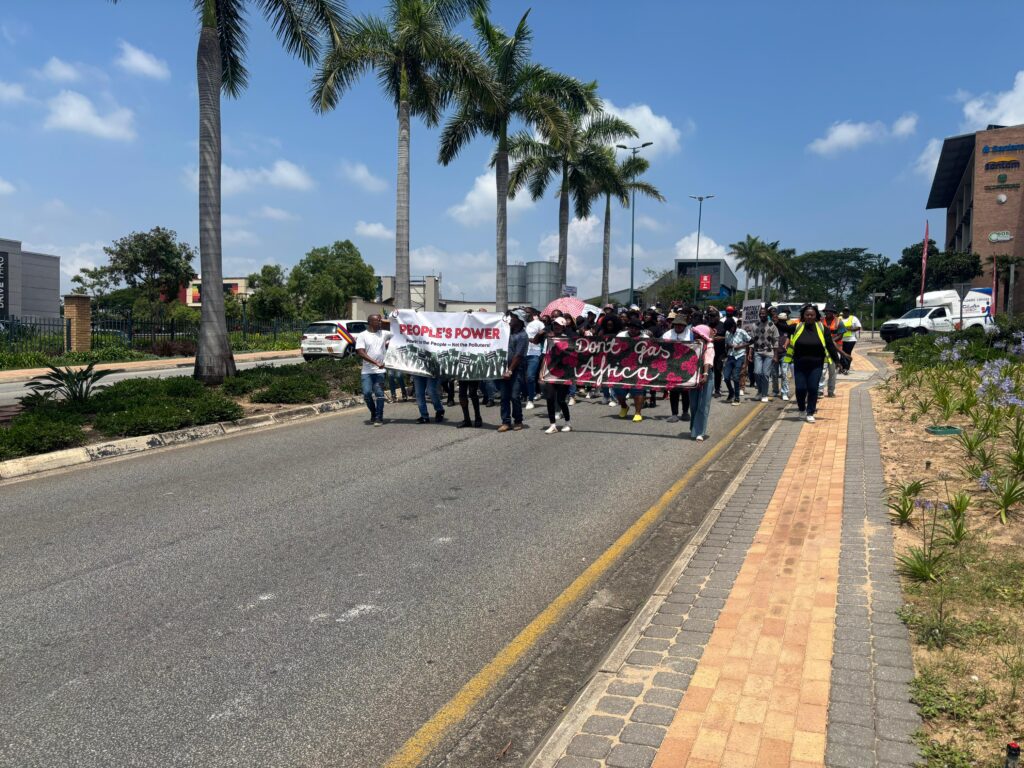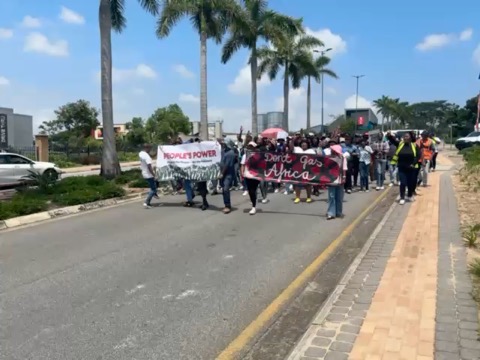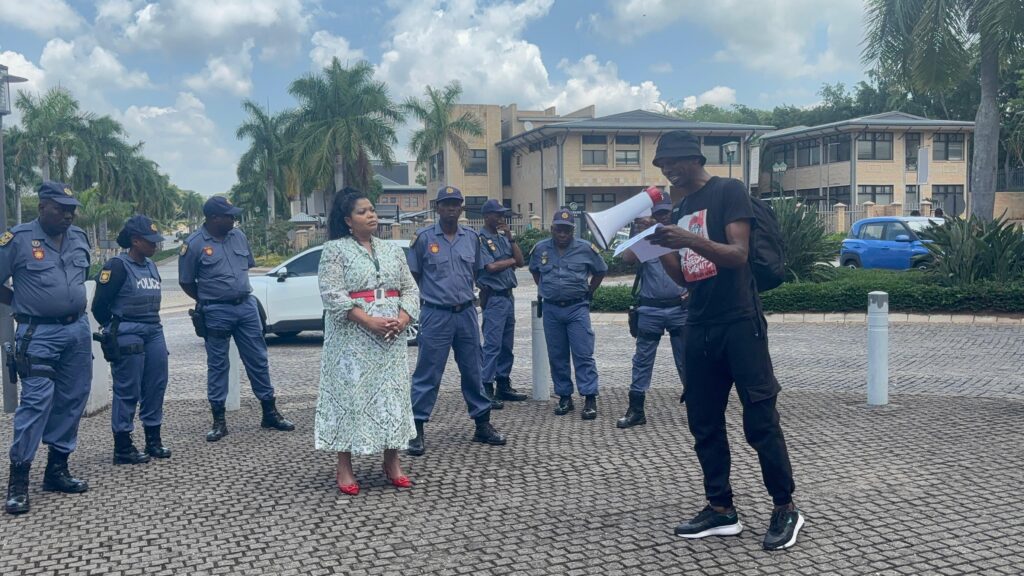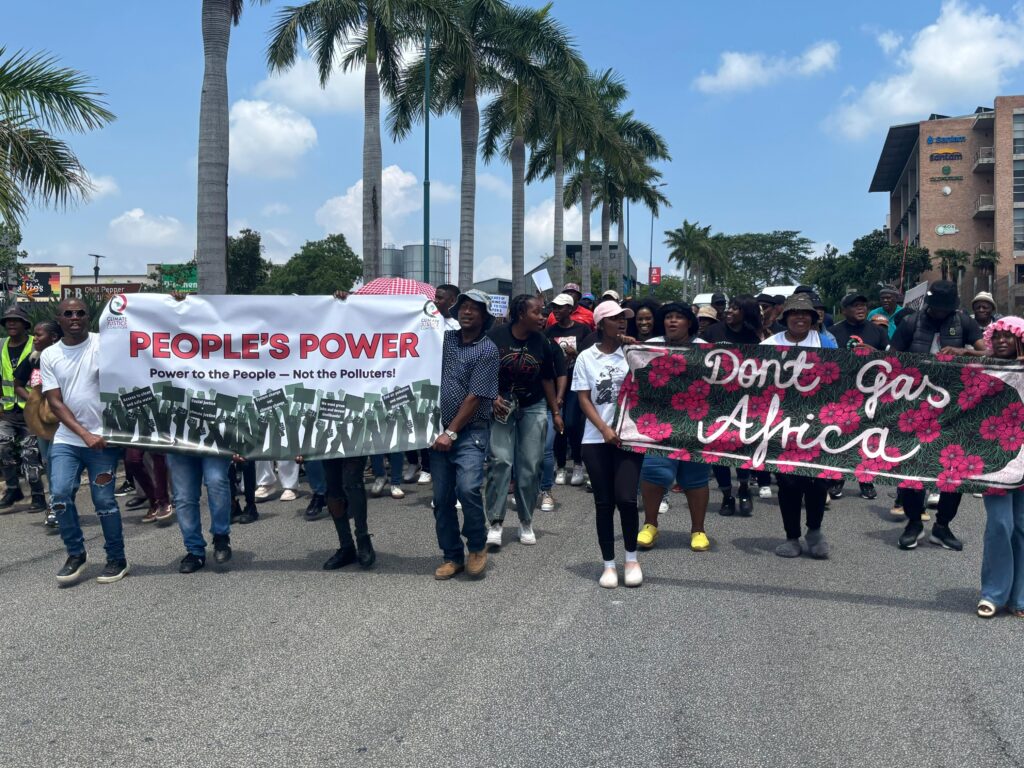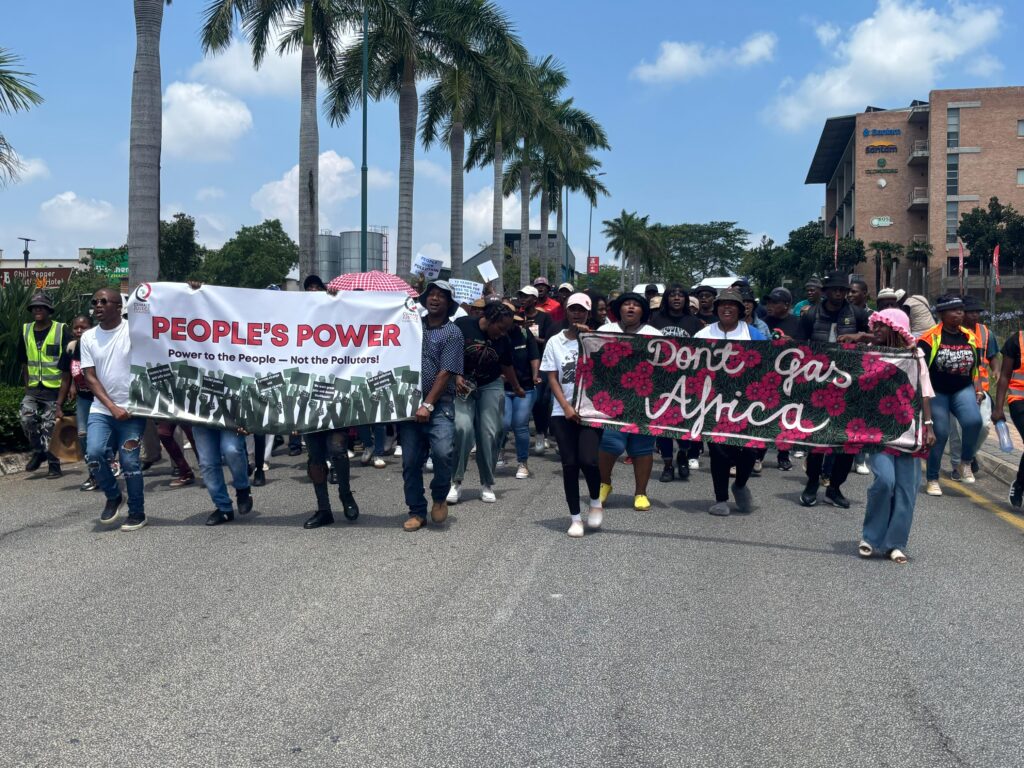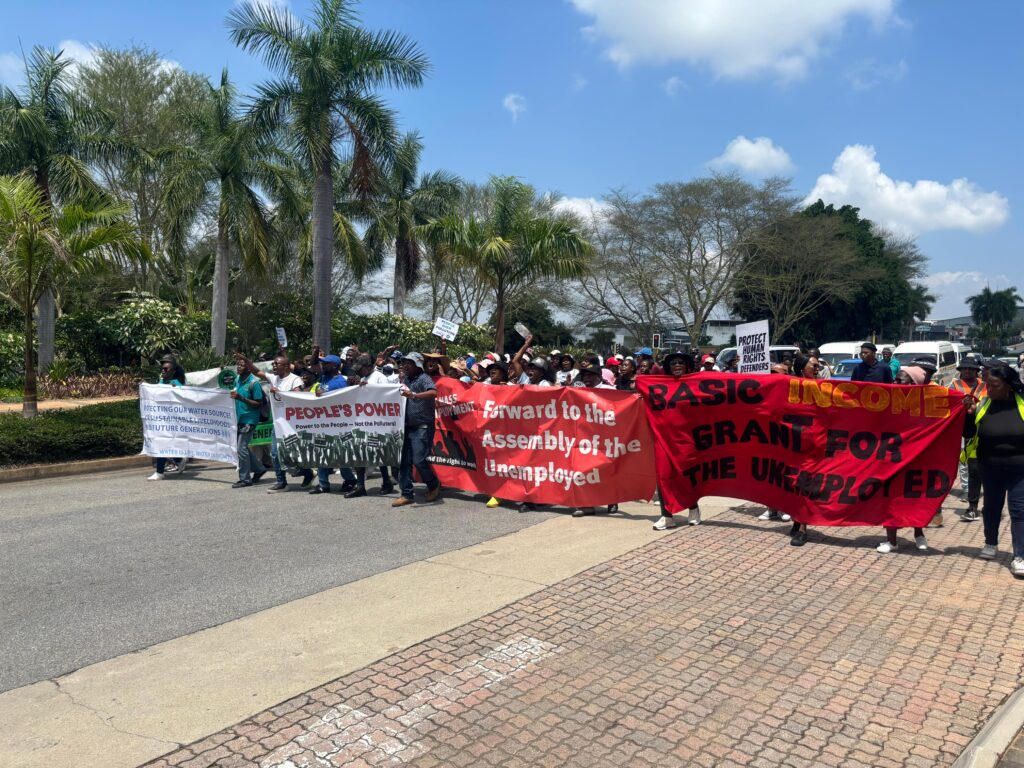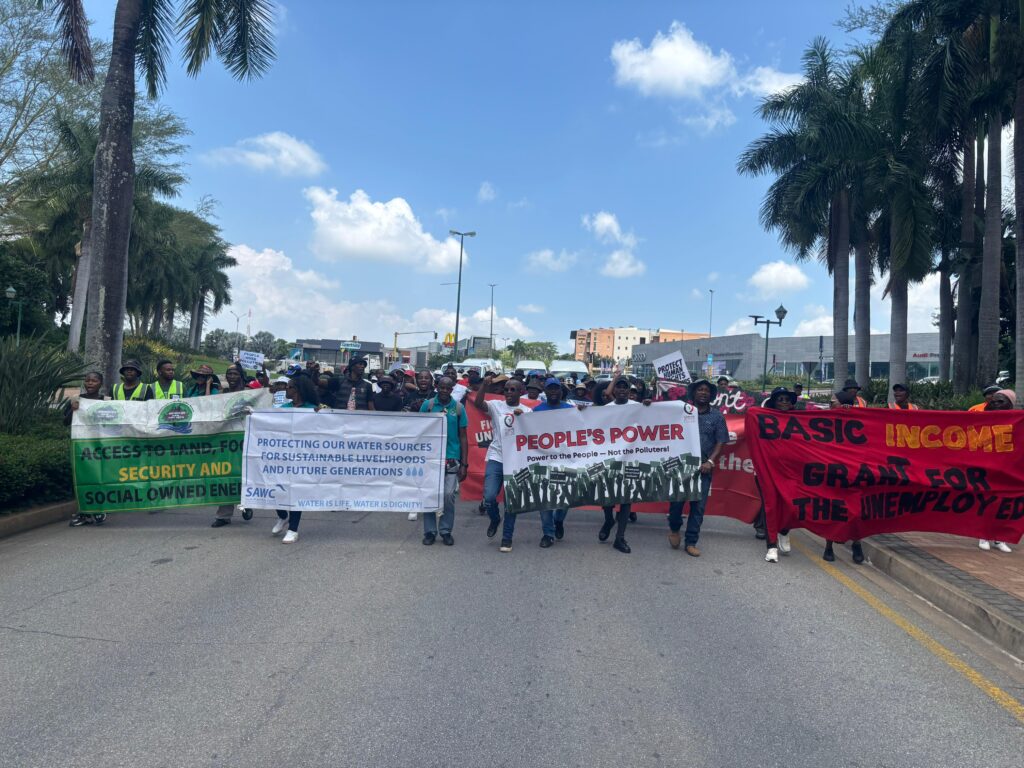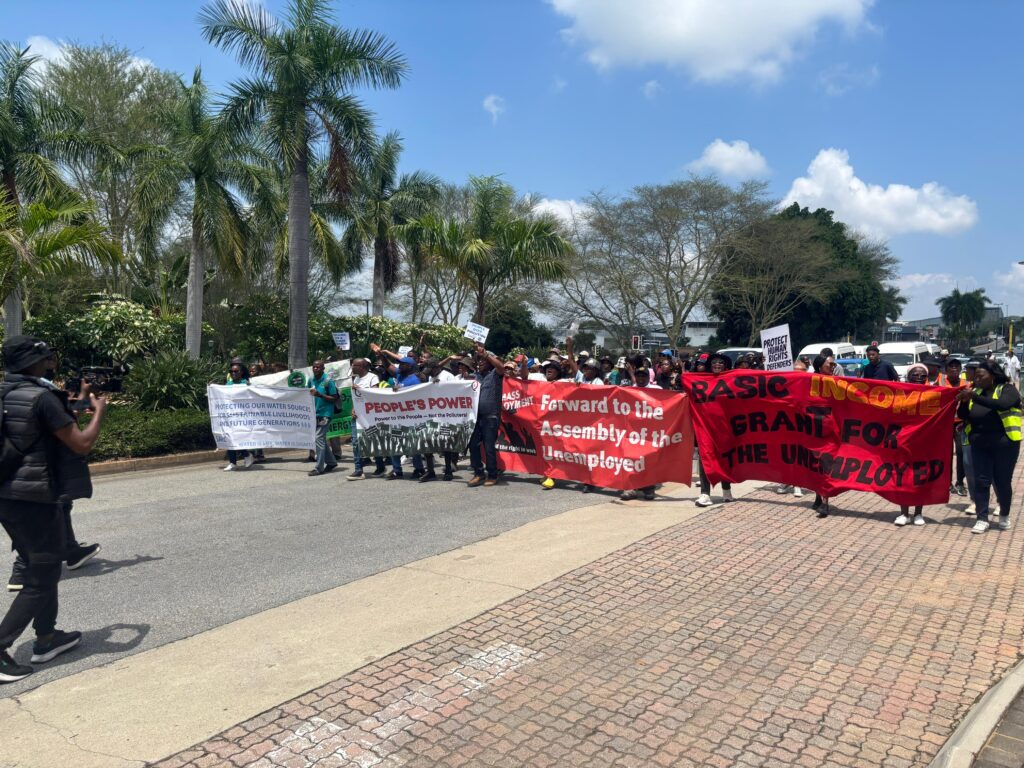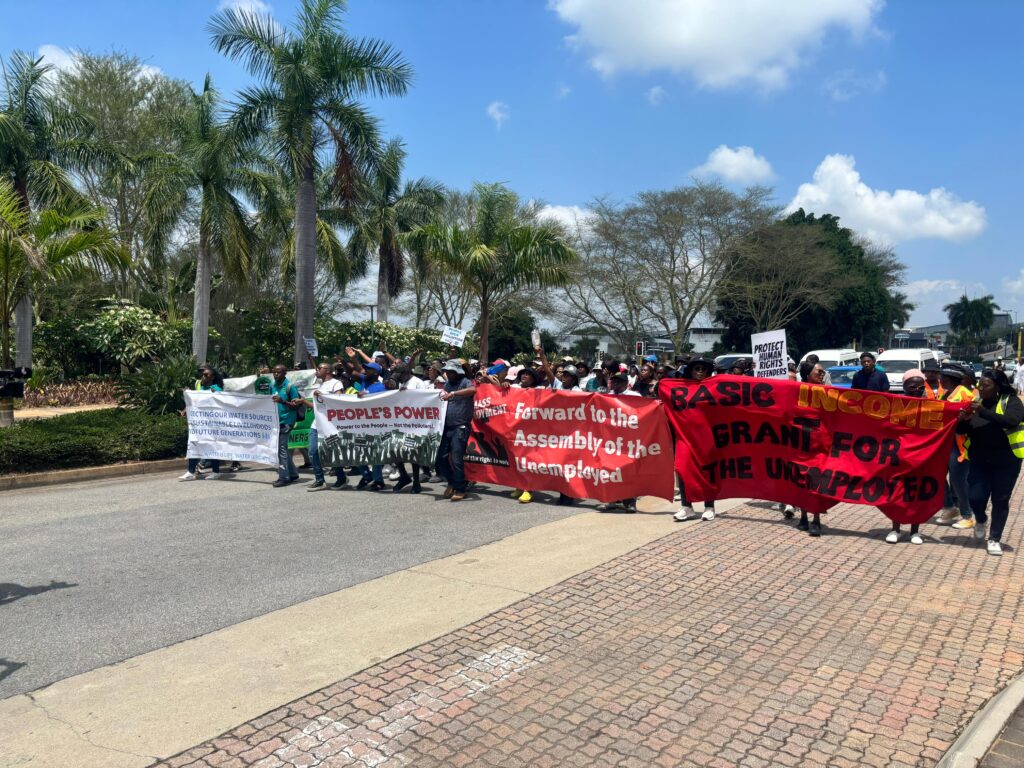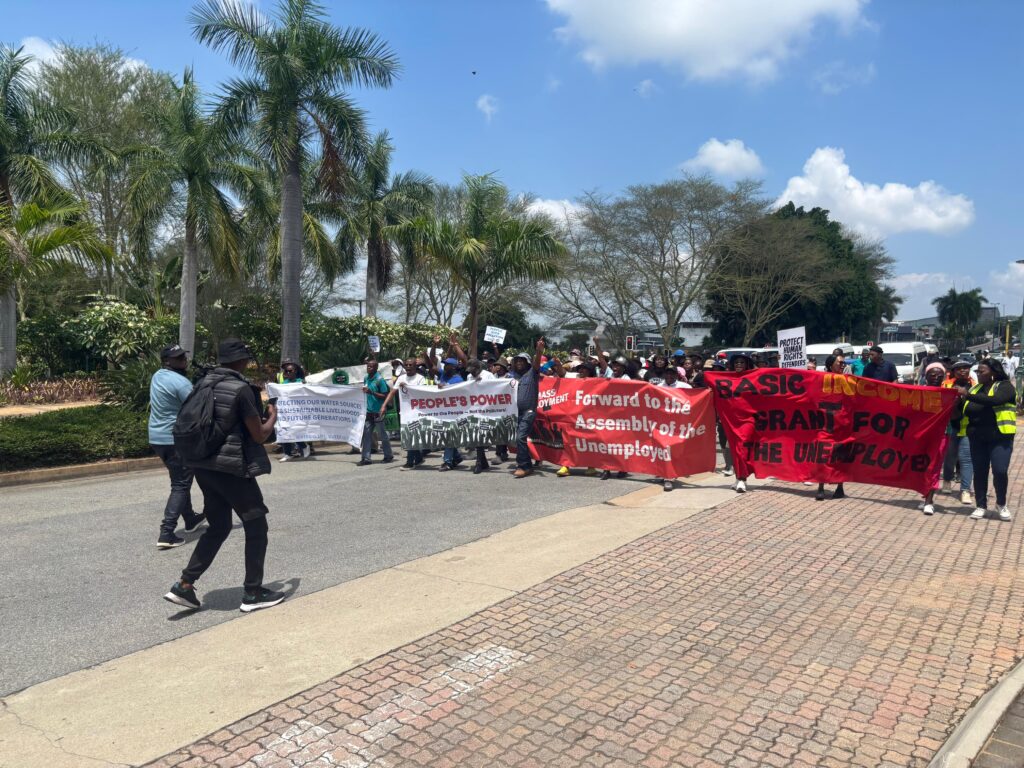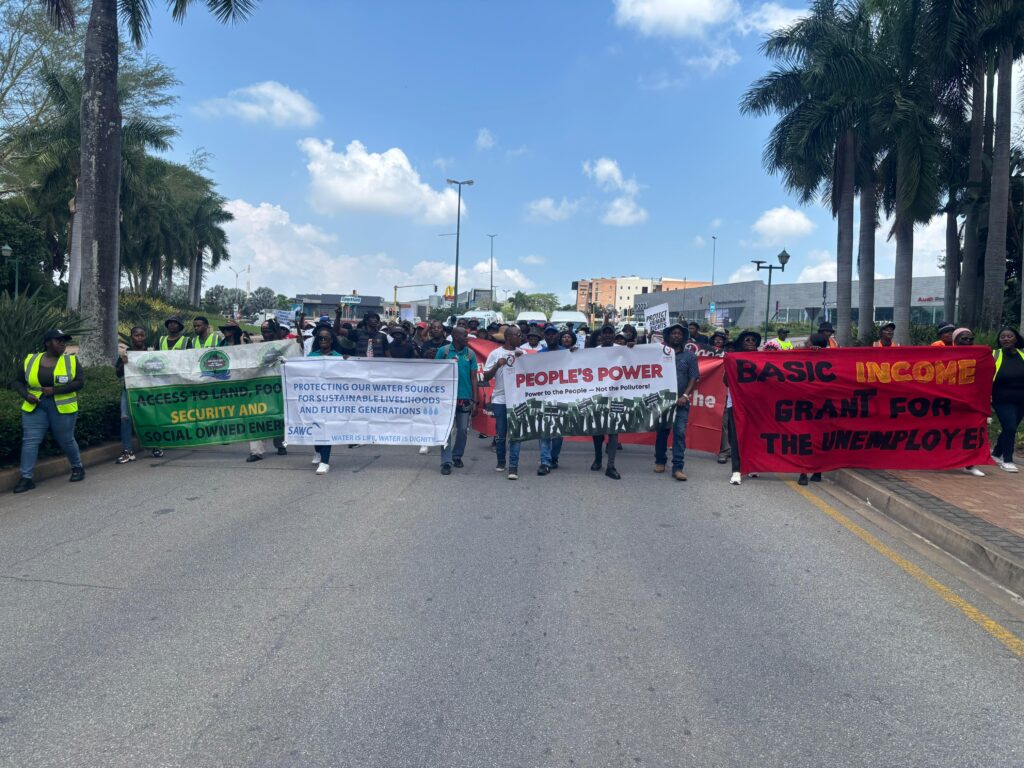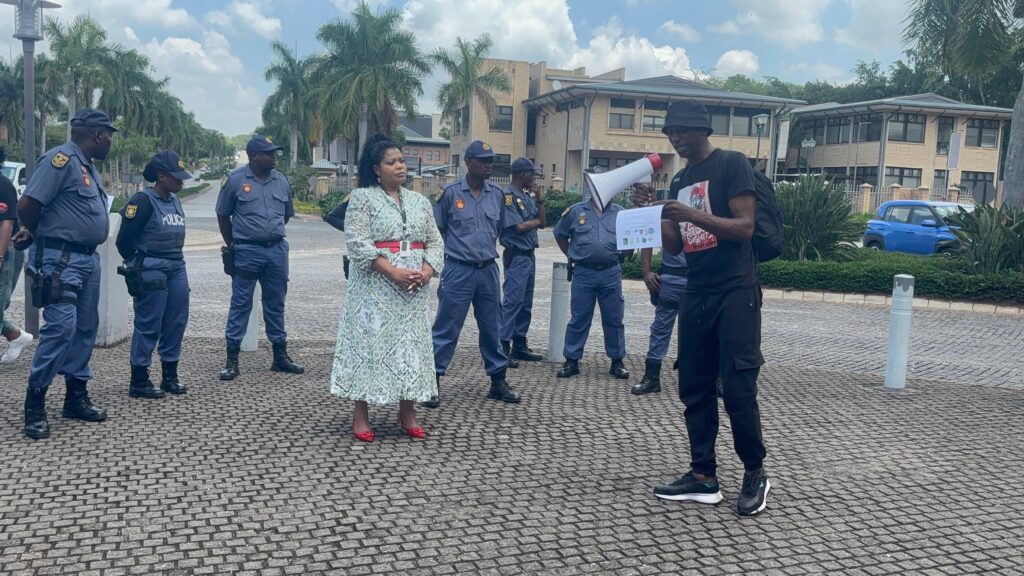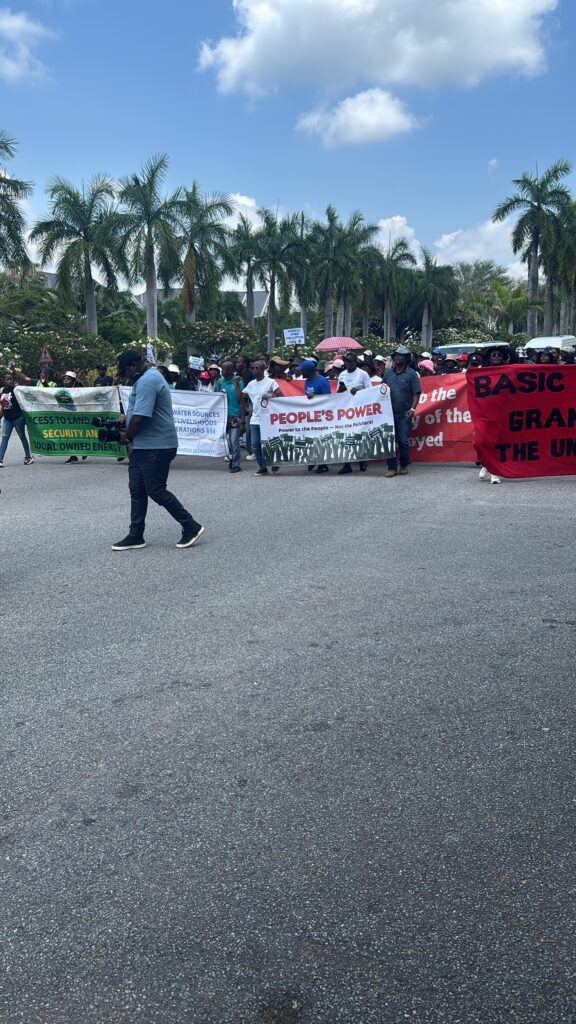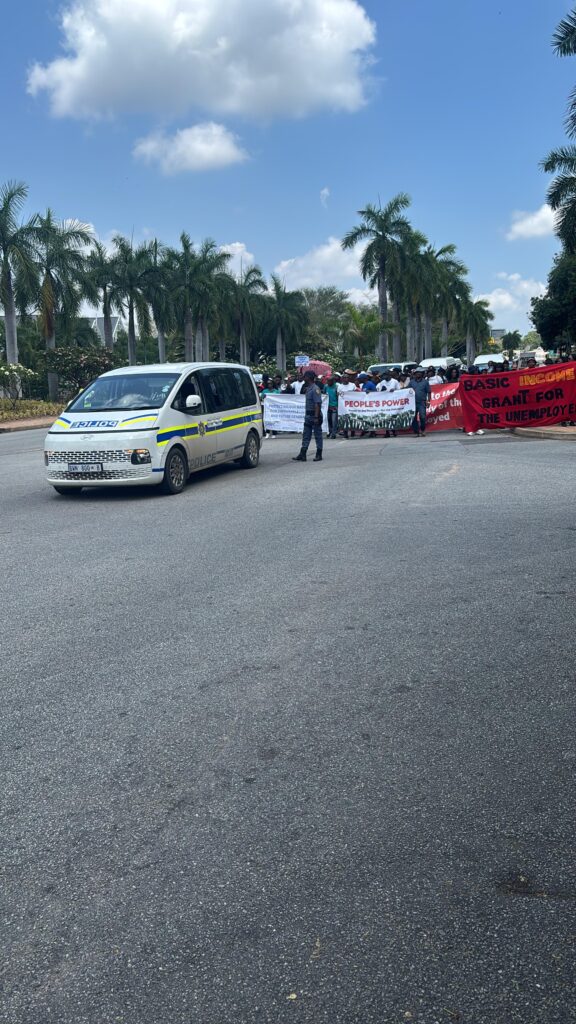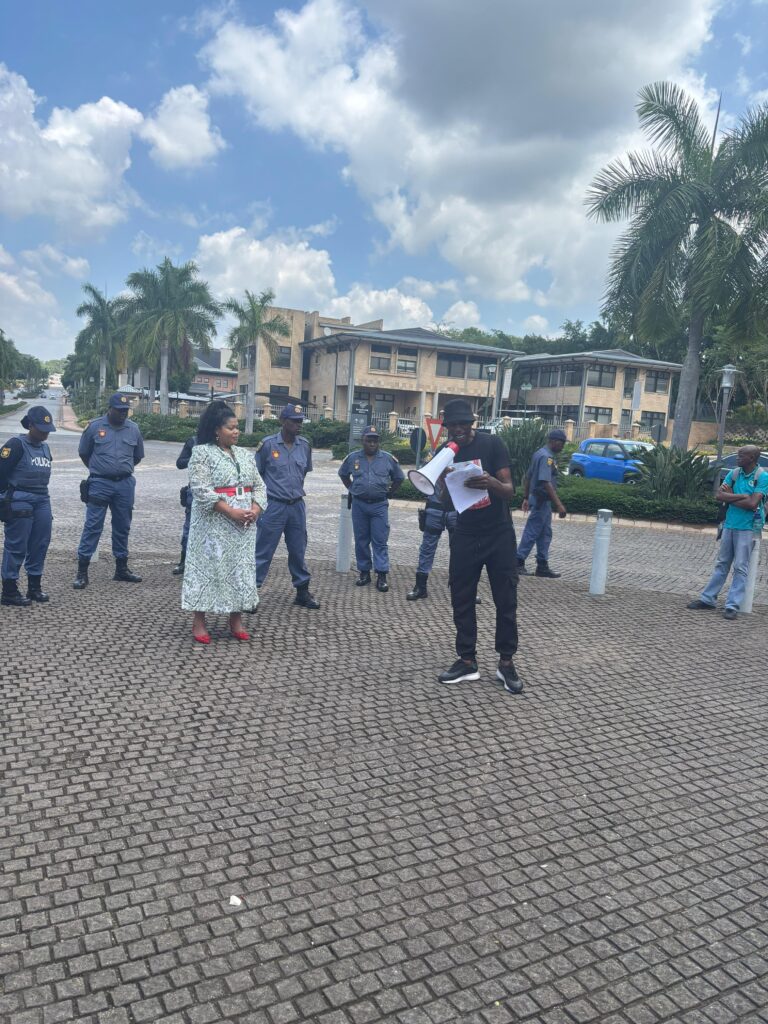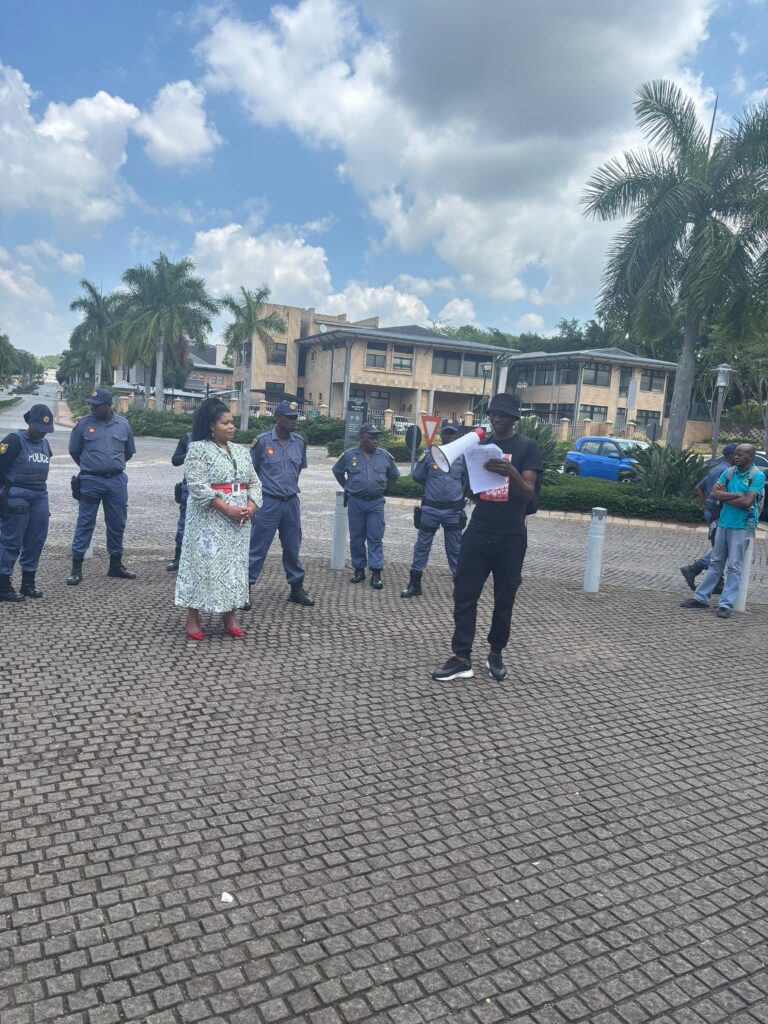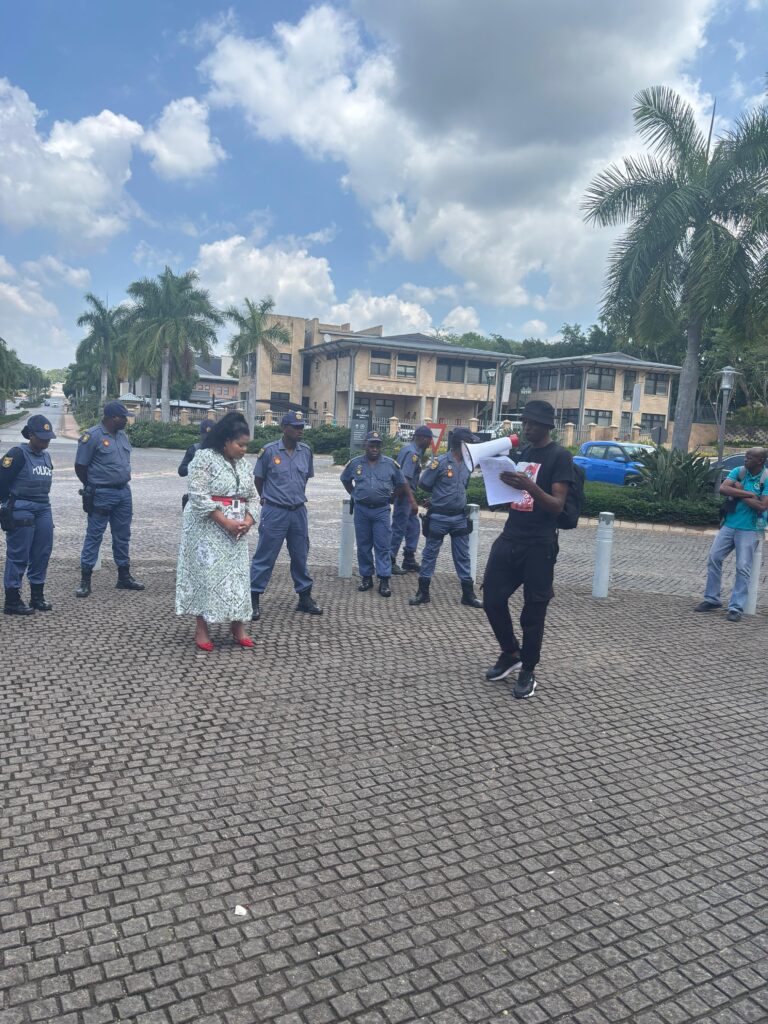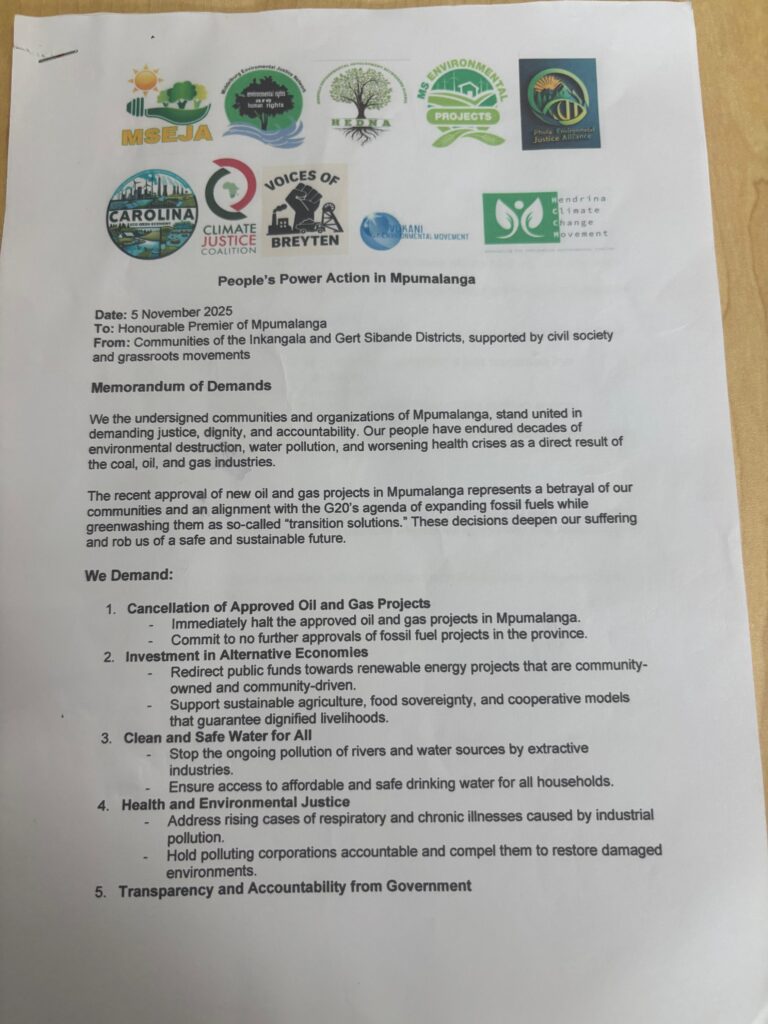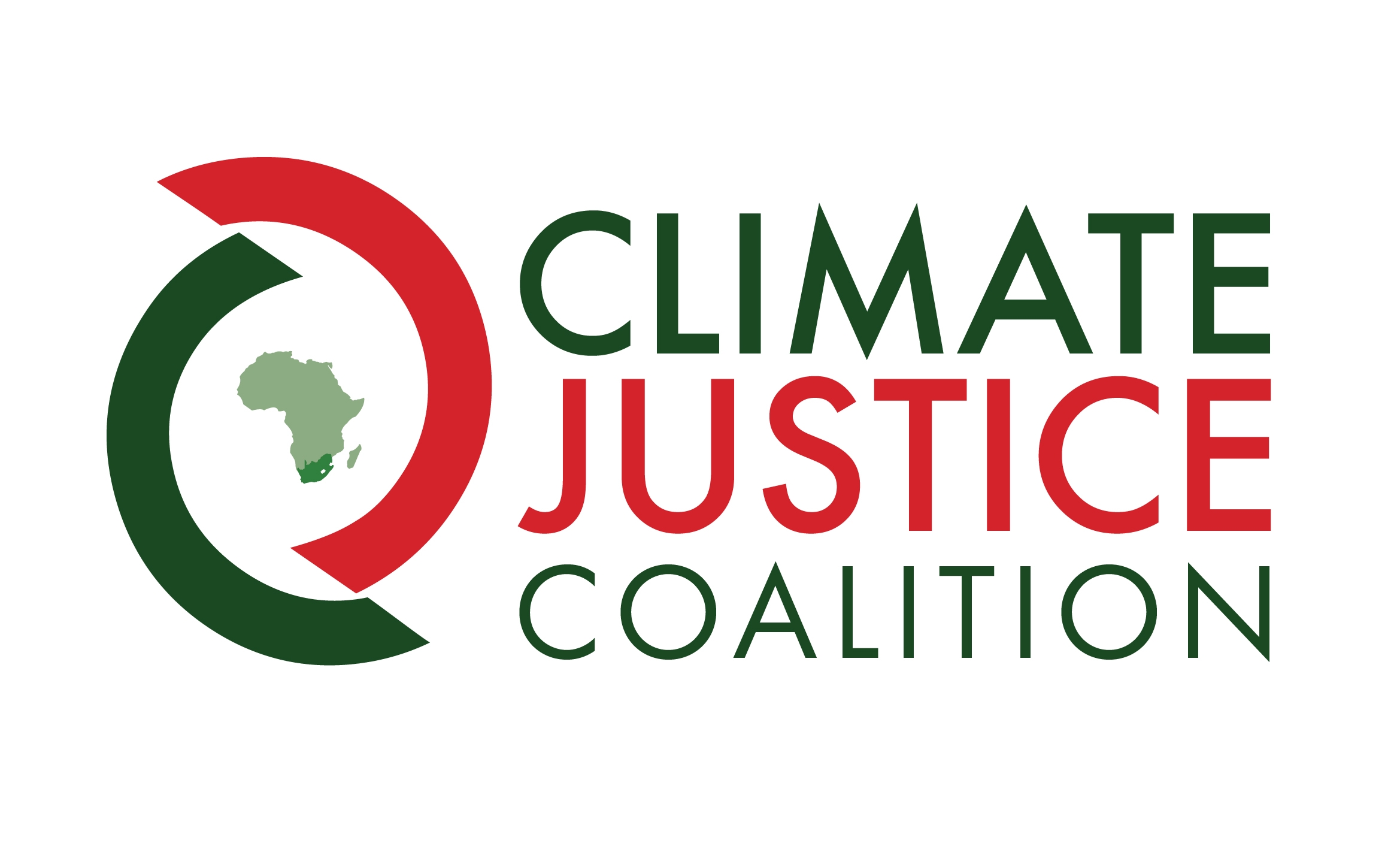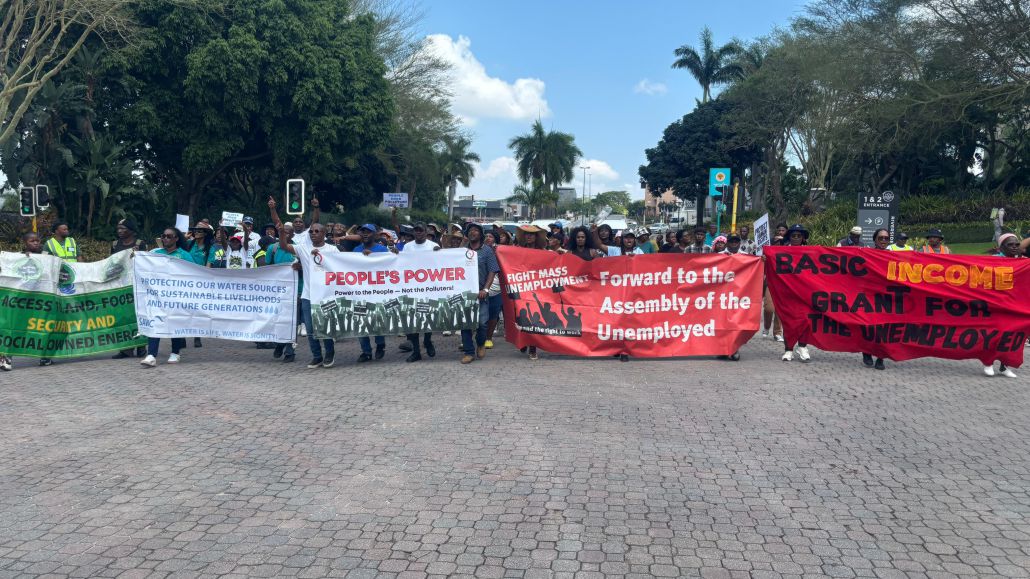People’s power in action: communities lead the struggle for climate justice
By Shaazia Ebrahim, Cleopatra Shezi, Lydia Petersen, and Lisa Makaula – 6 November 2025
In a world facing rising austerity, authoritarianism, and decision-making which benefits the elite few rather than the suffering majority, it begs the question: Who truly holds the power, and what happens when the people decide to take it back?
Over the past few months, the Climate Justice Coalition (CJC) has been putting this question into practice. Through its People’s Power campaign, the Coalition is reimagining what democracy looks like beyond seeing it as something handed down from politicians, but more as something built and owned by communities themselves.
Building on its strong foundations of grassroots organising and intersectional movement-building the Coalition has been supporting decentralised people and planet-centred actions by its members in Gauteng, Limpopo, Northern Cape, Western Cape, the Free State and Mpumalanga. These actions came to life in the form of workshops, marches and community dialogues, and are part of building a bottom-up movement that speaks directly to the struggles people face in their own communities, particularly as we head towards the 2026 local government elections.
The People’s Power campaign goes beyond slogans and symbols. It is about recognising that the climate crisis is rooted in a system that concentrates power and wealth in the hands of a few, while communities, especially poor, Black, rural, and working-class communities, carry the heaviest burdens of climate disaster, pollution, inequality, and unemployment. If governments cannot or will not transform that system, then the people must build democratic power.
Throughout September and October, we have seen powerful examples of communities stepping into that work:
On 16–17 September, community-based organisations from five districts came together in Lephalale, Limpopo to discuss how People’s Power can shape a just energy transition in the province. These communities know all too well the costs of coal – polluted air, destroyed water systems, and health risks – and they are demanding that the transition serves them, not just political elites or corporations.
On 18 September, activists in Johannesburg took part in the Draw the Line/ Peoples Power March, demanding tangible solutions to the energy and climate crisis. This call comes in conjunction with the rising electricity prices, the widespread water crisis and amidst a dire cost-of-living crisis that is pushing many working-class and poor households to the brink. Communities demanded that local governments deliver services, and include socially-owned renewable energy, skills training, and decent green jobs explicitly in their Integrated Development Plans.
For months, communities in the Northern Cape have been raising concerns about the radioactive nuclear waste dumped on their doorstep at the Vaalputs Waste Disposal Site. As they deepen their understanding of public participation processes, they are refusing to be sidelined in decisions that affect their lives. The National Radioactive Waste Disposal Institute (NRWDI) has now received an operational licence from the National Nuclear Regulator (NNR) to receive and store low- and intermediate-level nuclear waste, a move that has only strengthened local resistance. On 29 September, residents gathered at the Garies Community Hall in the Kamiesberg District to demand transparency, accountability, and an end to nuclear expansion, owing to its devastating environmental and socio-economic impacts. Their message was clear: our land, water, and health are not collateral for costly and dangerous energy schemes.
On 30 September, civil society organisations gathered outside Africa Energy Week in Cape Town to reject new oil and gas development on the continent. While politicians and corporations celebrate “business opportunities” in oil, coal, and gas, communities will make clear that these are false solutions that only seek to benefit the elites at the expense of people and the planet. Fossil fuels are driving poverty, inequality, and climate breakdown. Real solutions such as community-owned solar and wind, resilient food systems, and public investment in people’s needs are already within our reach.
On 16 October, more than activists from across the Free State gathered at Hoffman Square in Bloemfontein as part of the People’s Power campaign. The action spotlighted the growing frustrations around poor service delivery, unemployment, and the lack of government accountability. With homemade placards and powerful songs, they demanded climate justice, energy access, and good governance, showing that people are no longer waiting for change to trickle down, but are organising from the ground up to make it happen.
On 5 November, around 120 activists from across Mpumalanga took to the streets of Mbombela, marching from the Provincial Legislature to the Premier’s Office in a show of people’s power. In Mpumalanga, members called for clean and safe water, an end to air pollution and land destruction from mining, no new oil and gas projects, and real jobs and livelihoods that protect people and the planet. The Mpumalanga action showed how climate justice is deeply connected to people’s daily realities, and how communities are determined to hold both corporations and government accountable.
These actions speak to localised struggles amid the climate crisis. They expose how the climate crisis is fuelled by exploitative, extractive systems – upheld by capitalist interests and the aggressive policies that protect them. They give members and communities across the country the opportunity to express their frustrations and make calls for true change.
These actions are about sustaining momentum without burning out: grounding climate justice in the lived realities of ordinary people, while caring for mental health, protecting limited resources, and nurturing resilience within the movement. They remind us that building people’s power is about growing the capacity on the ground to hold those in power accountable. By allowing people’s power to rise from the bottom up, we are creating a movement that endures, outlasting campaign cycles, headlines, and political seasons.
As our leaders align more with far-right global ideologies rather than the interests of the people, it has become clear they are not for us – the call for resistance and the resurgence of people’s power has never been more urgent. As revolutionary leaders like Samora Machel and Steve Biko warned, liberation is meaningless if the same systems of exploitation remain in place, merely repackaged. Today, the growing climate crisis and widespread eco-apartheid demand that we finish the work of our unfinished revolution.
The CJC’s People’s Power campaign is one contribution to that task. From Lephalale to Cape Town, from Bloemfontein to Johannesburg, communities are rising. Together, we are building the power to transform South Africa’s future, one rooted not in elite capture and extractivism, but in justice, democracy and dignity for all.
